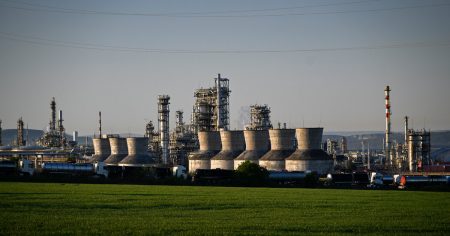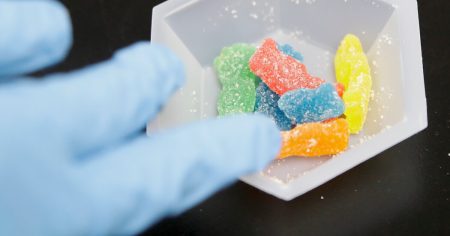The article discusses the concerns raised by neighbors over the spreading of treated sanitary sewer waste, known as biosolids, on the Hickory Bluff Farms in Ohio. The farm is located near residential areas, waterways, and a golf course, which has prompted about 75 people to express worries about traffic, odor, and potential risks to health and the environment. The trucks carrying biosolid sludge were hauled from Columbus’ wastewater treatment plant to the farm for use as fertilizer.
Steve Hadden, the owner of Hickory Bluff Farms, explained that he had to resort to using biosolids as fertilizer due to financial pressures and lack of access to traditional fertilizers. He believes that using biosolids is a healthier and more environmentally friendly option compared to synthetic products. However, the residents at the meeting raised concerns about potential health risks, including the presence of chemicals, heavy metals, and pharmaceuticals in the biosolids, as well as the possibility of runoff contaminating well water and aquifers.
Environmental consultant Julie Weatherington-Rice suggested that while biosolids could be a viable alternative to synthetics, the clay and silt soils of the area may not retain the biosolids, especially after a rain which could lead to leaching and contaminating the water table. Residents were worried about the impact on their well water and homes, and raised questions about the lack of information provided to the community about the biosolid applications. There were also concerns about the smell generated by the biosolid applications and the potential hazards posed to the residents.
Stacia Eckenwiler, assistant administrator with Columbus’ Department of Public Utilities, Division of Sewers and Drains, defended the use of biosolids, emphasizing their organic nature and efficiency in the food cycle. She explained that the treatment plants process human waste to make it usable and divert it from landfills or incineration. She highlighted the role of micro-organisms in reducing odors and volatile solids in the biosolids before they are used as fertilizer. Despite the concerns raised by residents, she stressed the importance of managing human waste products effectively.
After the meeting, Hadden reassured residents that he would consult with Weatherington-Rice before any future biosolid applications to address the concerns and ensure proper management. The residents and officials discussed the need for more transparency, testing, and education about biosolids to alleviate fears and ensure the safety of the environment and public health. The tension between the farm owner, residents, and officials reflected the complex issues surrounding the use of biosolids in agricultural practices, highlighting the need for further dialogue and oversight in the disposal and utilization of human waste byproducts.















